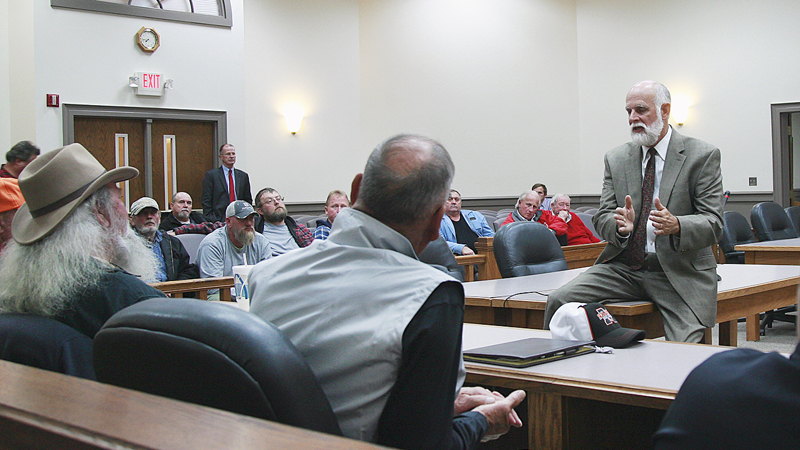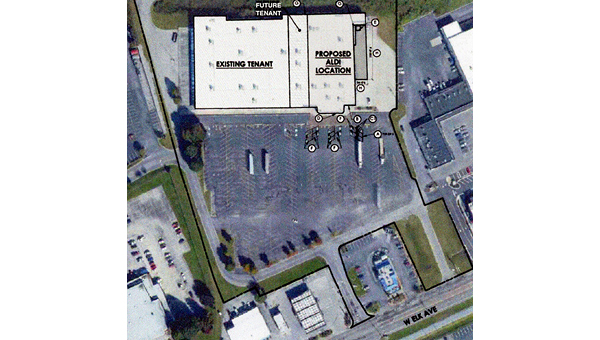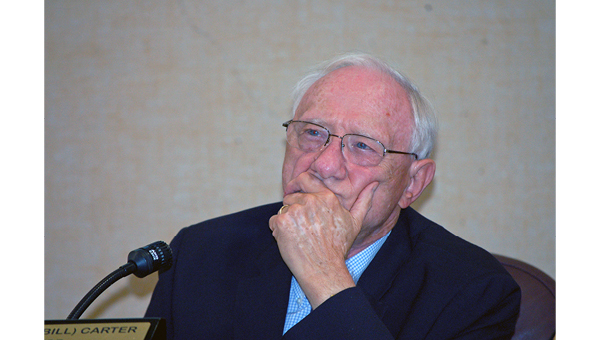County officials, employees learn about DPC insurance program
Published 9:01 am Tuesday, November 21, 2017

- Star Photo/Abby Morris-Frye Mark Watson, right, executive director of human resources for Union County, North Carolina, answers questions during the DPC Workshop.
Several county employees had questions during a recent workshop session on a Direct Primary Care (DPC) program for healthcare coverage, but there are still many answers to be found as Carter County looks for ways to lower the cost of insurance for employees.
Members of the Carter County Budget Committee and Health and Welfare Committee hosted the workshop session on Nov. 16 to learn more about the DPC program that has garnered success, and a lot of attention, in Union County, N.C. Mark Watson, the executive director of human resources for Union County, spoke to those in attendance about the DPC program for Union County, what led them to create it, and how it has worked for them.
Before he began his presentation, Watson stressed that he was only there to present information. “I’m not here to advocate one way or another,” he said. I’m not advocating for anything or selling anything. I am just telling you what works for us.”
Trending
Union County is located just southeast of Charlotte and is considered part of the greater Charlotte metropolitan area. The county’s population in 2015 was around 222,000 and the county employees about 1,000 individuals.
Like many other employers, over the years county officials were faced with increased costs in providing insurance for employees. In response, county officials voted to go with the company offering the lowest premiums, which Watson said led the county switching insurance carriers “every single year.”
This worked for a few years as long as there were new companies to switch to, Watson said. But, eventually, the county had cycled through all of the available insurance providers, which Watson said remembered how the county had jumped ship and “left them holding claims” with no way to recoup their losses.
That year, the lowest possible rate the county could get was a 25 percent increase over what they had paid the previous year.
“Sometimes crisis is the driver of change,” Watson said.
The county then switched to a self-funded “Consumer Driven Health Plan (CDHP)” insurance program where they set the coverage levels and paid the claims themselves. The county contracted with a third-party to handle claims processing, but the county itself wrote the checks to make payments to the healthcare providers.
Trending
Two years ago, the county looked into another option to help save even more money. They developed a DPC program as an option for county employees. Those who did not wish to participate in the DPC could remain with the traditional insurance plan offered by the county.
Under the DPC, the county contracted with a healthcare vendor to provide primary care for county employees at a contract rate. Under the terms of the contract, employees would have unrestricted access to the primary care physicians and a designated list of services without any cost at all. There are no limits on the number of times the employee can see their physician, Watson said.
“In the first year we had 40 percent of employees sign up for DPC, and 60 percent stated with the traditional plan,” Watson said. “Today we have just over 51 percent of our covered employees and families on the DPC.”
“DPC participants spend 46 percent less out of pocket for prescriptions and medical expenses than CDHP participants,” he added.
Over the course of the first year, Union County saved $1.28 Million through the DPC.
The DPC covers any primary care needs of the employee or covered dependents. If a specialist, surgery, emergency room visit, or hospitalization is required, the employee pays 20 percent of the costs while the plan picks up 80 percent. After a $2,000 out-of-pocket maximum, the plan picks up 100 percent of the costs.
To implement the self-funded insurance program and the DPC, Union County had to also purchase catastrophic coverage and stop-loss insurance, as well as having a fund reserve available to pay claims.
During the workshop session, many of the county employees and elected officials in attendance had questions on the DPC program and how it works. Most were concerned with being able to keep the doctor they already have.
Under the DPC, Union County contracts with the physicians, so those participating in the DPC must go to one of the contracted physicians. However, Watson said that is the model which Union County uses, and there are other models available or being developed that allow employees more choice when it comes to their primary care provider.
Following the workshop session, Carter County Commission Chairman Dr. Robert Acuff said he was pleased with the turnout for the event. Acuff said the county has no plans to implement any changes to employee insurance program at this time but is simply gathering information about all of the options available for consideration in the future.





